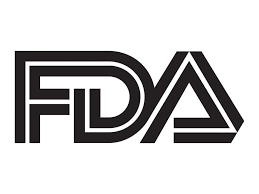Article
FDA Denies Marketing of JUUL Vaping Products in the US
Author(s):
The issued marketing denial orders require the country's most popular vaping device company remove all commercial products on the basis of insufficient toxicity data.

The US Food and Drug Administration (FDA) has issued marketing denial orders (MDOs) to JUUL Labs for all of their products currently being marketed in the US. In essence, the MDOs require that the prominent e-cigarette and vaping device provider remove all its commercial products under risk of enforcement action.
The MDOs do not restrict individual’s possession or use of the the vaping devices, and the FDA’s jurisdiction does not allow them to enforce against any such actions. However, the decision significantly shifts the US regulation standards of e-cigarettes and vaping products; JUUL constituted approximately two-thirds of all e-cigarette dollar sales in the US, according to a 2020 study.
“Because of JUUL’s market dominance and popularity among teenagers and young adults, monitoring its use is critical to informing intervention efforts,” investigators wrote at the time. “This study contributes to a growing body of evidence that use of an e-cigarette, particularly JUUL, is becoming an accepted part of youth culture.”
Indeed, FDA commissioner Robert M. Califf, MD, called the FDA’s action an advancement of the agency’s commitment to “ensuring that all e-cigarette and electronic nicotine delivery system products currently being marketed to consumers meet our public health standards.”
“The agency has dedicated significant resources to review products from the companies that account for most of the U.S. market,” Califf said in a statement Thursday. “We recognize these make up a significant part of the available products and many have played a disproportionate role in the rise in youth vaping.”
The MDOs to JUUL were determined in review of the company’s premarket tobacco product applications (PMTAs), of which the FDA decided evidence regarding the toxilogical profile of the vape and e-cigarette products were insufficient for marketing authorization. More specifically, the agency cited JUUL study findings showing “insufficient and conflicting data…regarding genotoxicity and potentially harmful chemicals leaching from the company’s proprietary e-liquid pods.”
Michele Mital, acting director of the FDA’s Center for Tobacco Products, stated JUUL had opportunities to provide evidence showing their devices met the standards of regulated tobacco products in the US.
“However, the company did not provide that evidence and instead left us with significant questions,” she said. “Without the data needed to determine relevant health risks, the FDA is issuing these marketing denial orders.”
The FDA also expressed worry regarding the potential harms of using third-party e-liquid pods with the JUUL device, or JUUL pods with non-proprietary devices. This has been a recurring concern for the regulatory and researcher fields of pulmonary health for as long as the younger e-cigarette market has been prominent. A vaping guidance presented by the Society of Critical Care Medicine in 2020 set precedent for assessing risk of and treating vaping-associated respiratory distress syndrome (VARDS)—a first-of-its-kind set of recommendations that acknowledge the unique health risks of both regulated and unregulated vape devices.
In a 2021 episode of Lungcast, Kevin Walton, PhD, chief of the clinical research grants branch at the National Institute on Drug Abuse, discussed the burden of discrepancies in the containment measures of both regulated and unregulated e-cigarette and vaping devices. Even in the best-intentioned use of vaping products—to reduce combustible cigarette use and nicotine exposure in daily users—there is no guarantee of such effect with available devices.
“That adds to the confusion, because you can have an e-liquid with a very low nicotine concentration but a very strong battery, and that can deliver a lot of nicotine,” Walton explained. “And you can have a device with a highly concentrated nicotine and a lower battery, and it can deliver the same amount of nicotine.”
Former FDA commissioner Scott Gottlieb, MD, lauded the agency’s decision in a tweet Thursday morning, calling JUUL “fulcrum of the youth vaping crisis.”
“Electronic devices offer opportunity for adult smokers to transition off combustible products but must be conceived, marketed by responsible actors,” he wrote.
Earlier this year, the FDA announced intentions to seek a ban of menthol-flavored cigarettes and non-tobacco flavored cigars, in order to directly impact rates of youth tobacco experimentation, use, and risk of addiction.
JUUL did not release a statement regarding the MDOs as of Thursday morning.





